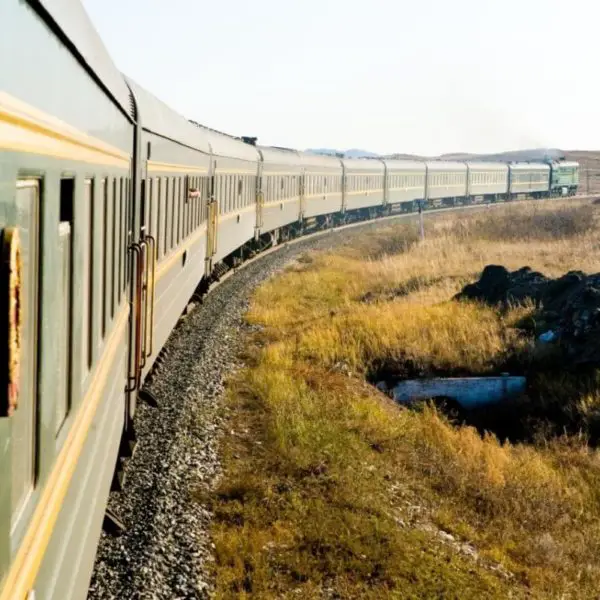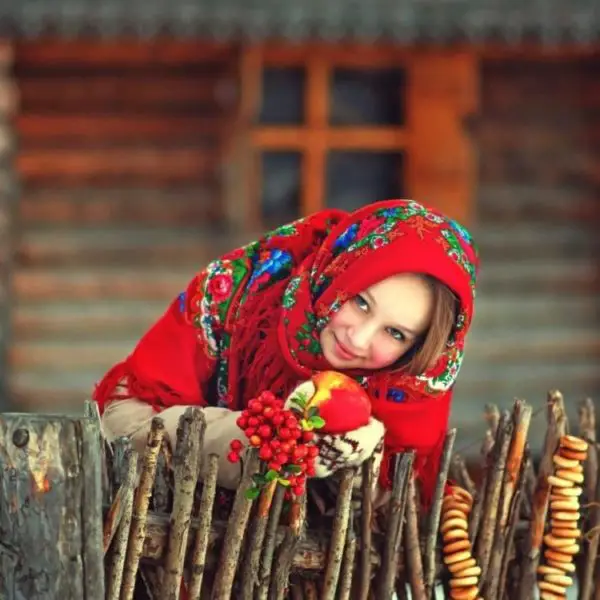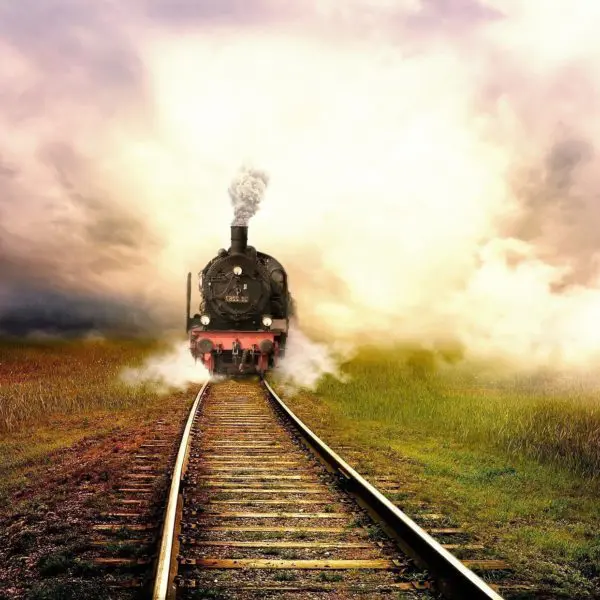Top 13 Trans Siberian Stops Travellers Should Take time to explore
It is safe to say that a journey along the famous Trans-Siberian Railway would be a dream come true and a tick on the travel bucket list for many travellers. Known as the world’s longest railway journey which takes you across 10 different time zones. We thought you should know which are the best Trans Siberian Stops to spend a little time and explore.
Starting from the glamorous city of Moscow and ending at Vladivostok in the Russian Far East, the train passes through quaint rural villages, towering mountains and ancient Siberian forests. There are many Trans Siberian stops that can be made en route, each capturing a different aspect of the mysterious Russian soul. To help you decide where to visit, we’ve put together a list of our travellers’ top 13 favourite stopover destinations along the Trans-Siberian Railway.
Table of Contents
1. St Petersburg
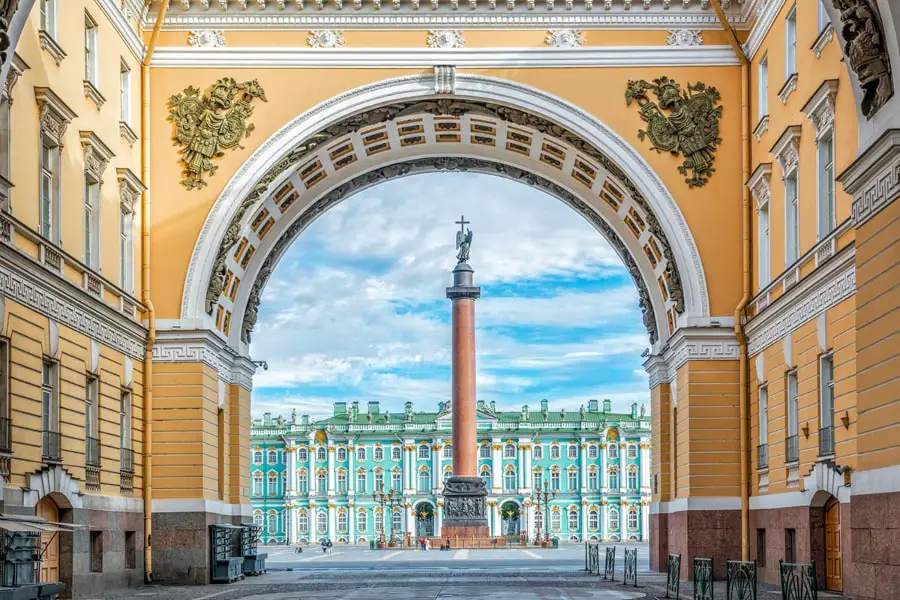
While not technically the first real Trans Siberian stops heading west, St. Petersburg is not a city to be left out as it holds many of Russia’s cultural and historical treasures. Founded by Peter the Great as the country’s “window to the West”, the city was designed and built by Europe’s most renown architects to become the most elegant and enchanting metropolis in the world. Visit the magnificent palaces of Petergof, Pavlovsk or Pushkin, admire stunning works of art in the Hermitage Museum and enjoy a ballet performance in the world-famous Mariinsky Theatre. There are daily and overnight trains that run from St. Petersburg to Moscow, where the Trans-Siberian Railway begins.
2. Moscow
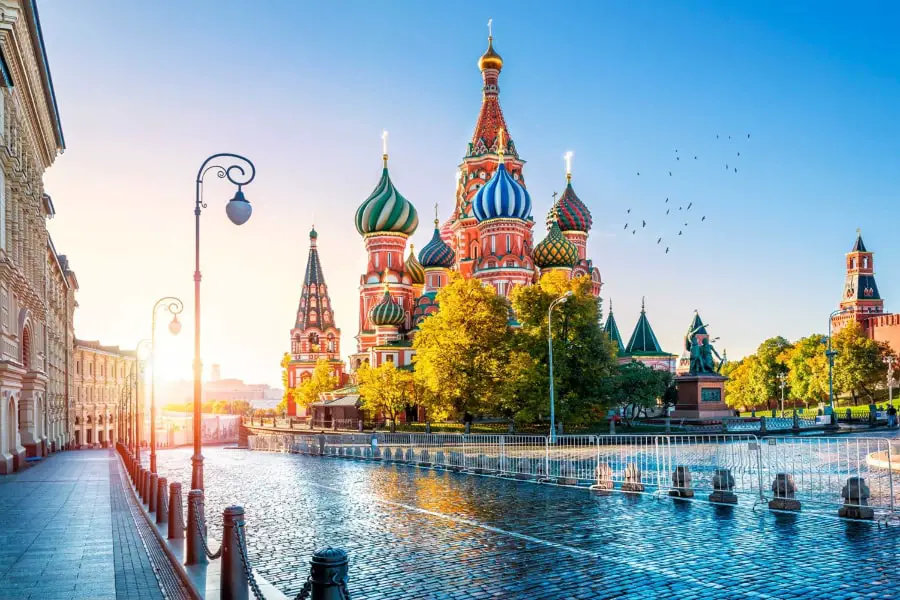
Often called “Russia’s soul”, Moscow has captured the hearts of millions with its many famous cultural sights and attractions. The first Trans Siberian stopover is at the Yaroslavl Station in the centre of Moscow. A haven for any art lover, visit the plethora of galleries and museums such as The State Tretyakov Gallery and the Pushkin State Museum of Fine Arts, where a large collection of modern and historical artworks are showcased. You could also treat yourself to a play in the Bolshoi Theatre, be amazed by the magnificence of the Red Square and the Kremlin, or simply enjoy Moscow’s glitzy nightlife in the countless artsy bars, thriving clubs or vintage pubs. With an endless amount of things to see and do, you will never have a dull day in this stunning city.
3. Kazan
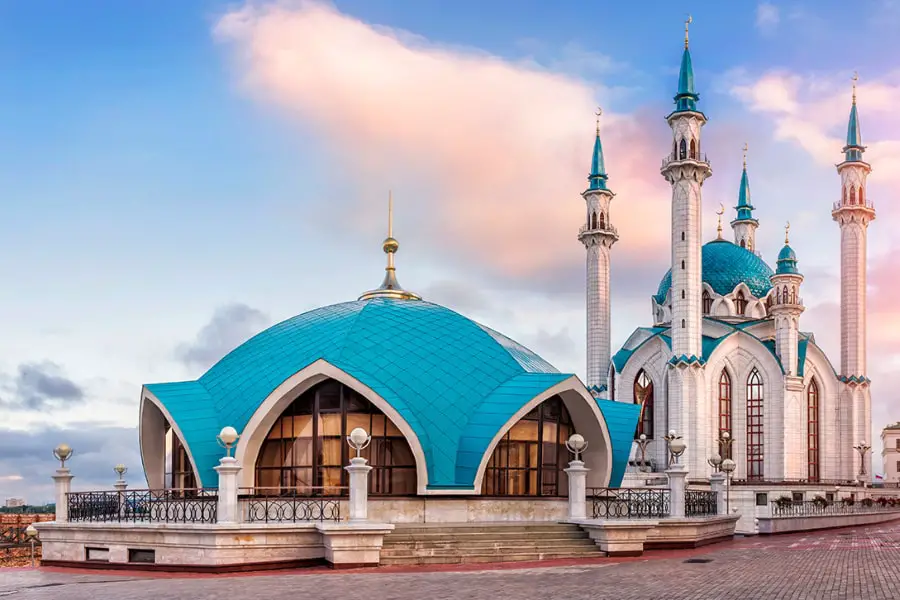
Established on the shimmering banks of River Kazanka and River Volga, the picturesque city of Kazan is a worthwhile detour from the main Trans-Siberian route. Visit the sole surviving Tatar fortress, the mighty Kazan Kremlin Complex. This centuries-old citadel has been declared a world heritage site and serves as a home of sacred sites, various museums and historical buildings erected between the 16th and 19th century. The seamless blend of Muslim and Christian culture within the city makes the capital of Tatarstan republic unique from the rest of Russia in a very special way. Both Russian Orthodox Cathedrals and Mosques can be found side by side within the snow-white walls. Be amazed the ornate designs of theQolşärif Mosque, get lost in the National Museum of the Republic of Tatarstan, and stroll through the Millennium Park of Kazan.
4. Yekaterinburg
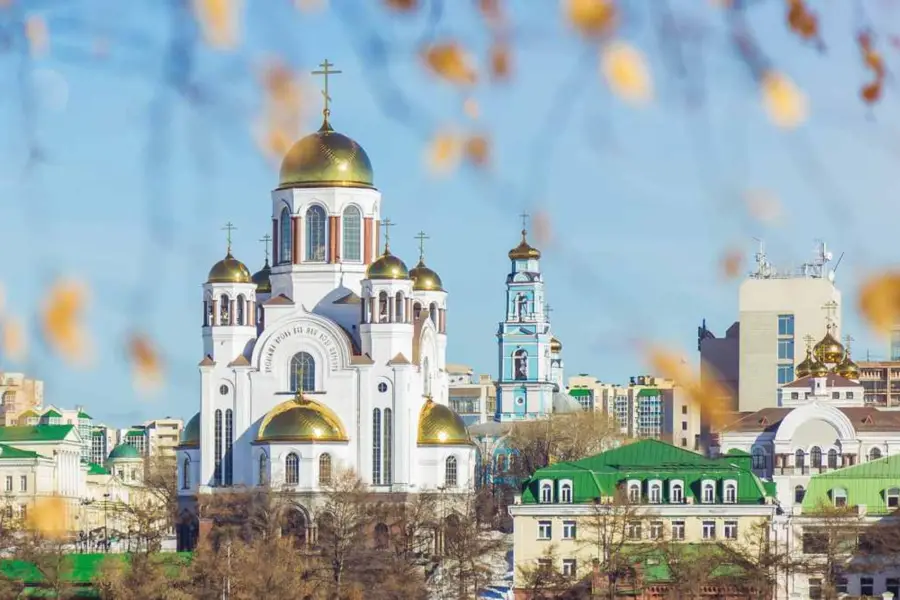
Synonymous with the Romanovs, Yekaterinburg is most famously known as the place where the rule of the Tsars came to a bloody end when Nicholas II and his family were murdered and their bodies dumped. The Ganina Yama monasteries (7 in total to honour each member of the royal family) and the Church on the Blood were constructed to mark the spot where to Romanovs were executed. Present-day Yekaterinburg carries a very different vibe and soul compared to its cosmopolitan counterparts of Moscow and St Petersburg. It is here where you can get a taste of real Russia with its many pre-Soviet monuments, beautiful churches and a number of museums. Don’t forget to visit the official marker of the Europe Asia border at Ekaterinburg while at this Trans-Siberian attraction, where you can personally straddle two continents.
5. The city of Perm and the Ural Mountains
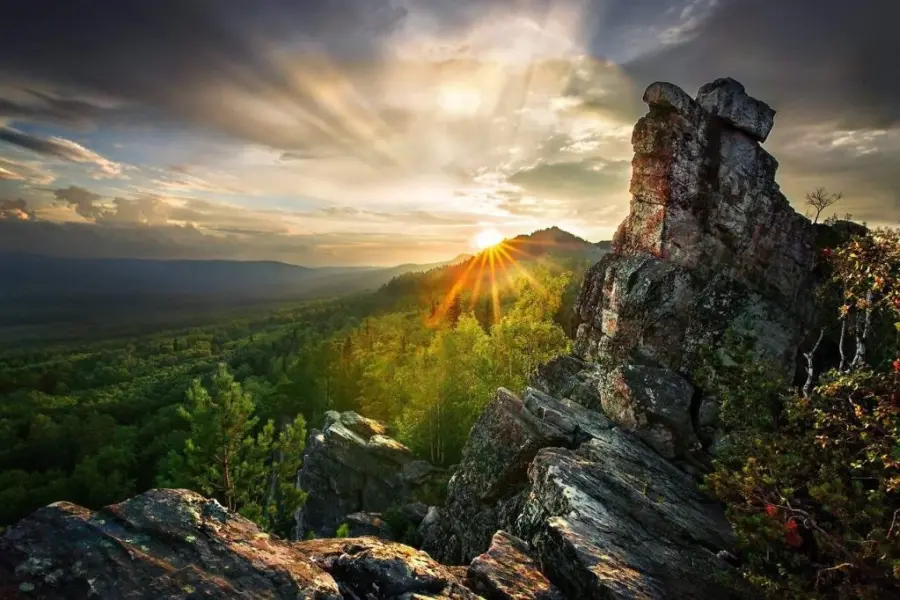
Previously a closed city due to its arms industry, the city of Perm is now open to both the public and also foreigners. This may not necessarily be the most common Trans Siberian stopover, but is still definitely worth seeing. You’ll have the options of visiting the ballet, opera or theatre as well as their exquisite open-air military museums. Those with a knack for adventure can use the city as a perfect starting point for hiking and rafting expeditions, as Perm is situated at the foot of the modestly high Ural Mountains. A mountain barrier that separates Europe from Asia, the Urals is a unique geographical treasure that holds many secrets. Hike your way through ancient taiga, fight to cross rapid mountain rivers and explore mysterious ice caves. Depending on the season, you also have the option to ski, cycle, horse ride, observe wildlife, and study wild flora.
6. Krasnoyarsk
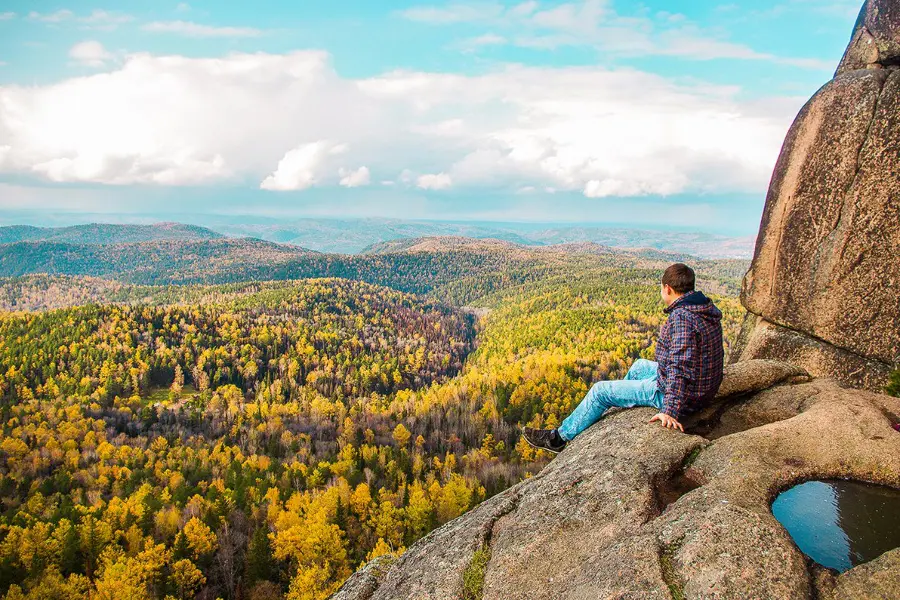
Despite the city itself being fairly bland, Krasnoyarsk is a Trans Siberian stopover surrounded by picturesque mountains and lush, wildlife-rich forests. The mighty Enisey River is a sight to see in and of itself, where you can witness the full power of the Siberian river as it rushes through the lands. For an incredible view over the flatlands and the city itself, head south of Krasnoyarsk to Mount Karulnaya. However, the most captivating highlight in the area is the unique Stolby Nature reserve, where a number of towering volcanic pillars can be found scattered throughout the wooded hills. This natural landmark is a popular destination for rock climbing and bouldering enthusiasts due to the large variety of structures to climb, and its breathtaking views at the top of the rocks. Other experiences in Krasnoyarsk include skiing at Bobrovy Log, visiting the zoo at Royev Ruchey, exploring the Krasnoyarsk Regional Museum of Local Lore, and visiting the Paraskeva Pyatnitsa Chapel.
7. Altai Mountains
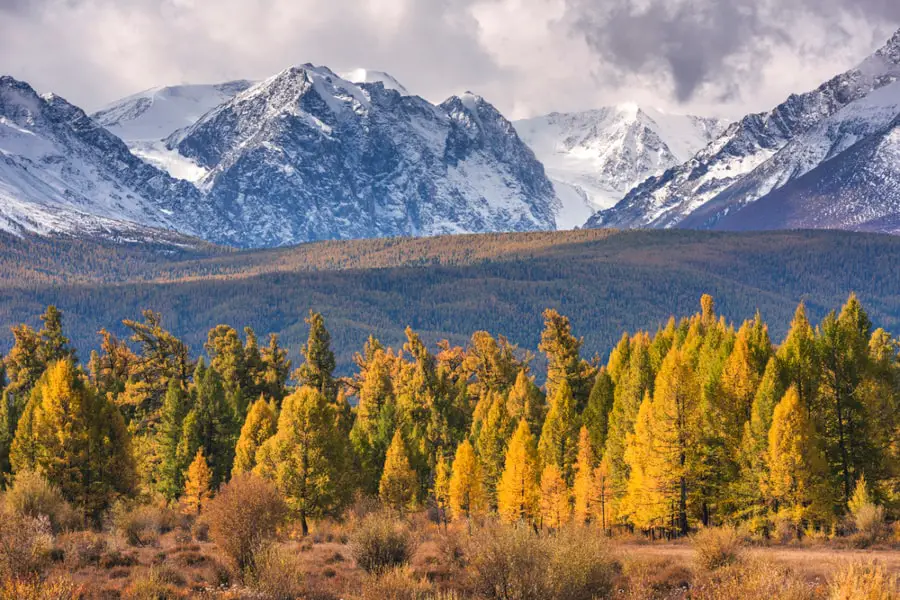
The Altai Mountains, regarded as Asia’s geographical heart, are a group of hauntingly beautiful and sparsely populated mountains that connect the countries of China, Russia, Kazakhstan and Mongolia together. It is the cleanest region of the Russian Federation, meaning that there are no railways or industrial enterprises in the area. Accessible through the city of Barnaul, the landscape is diverse and varied, ranging from grass steppes, taiga and deserts to glaciers, raging rivers, snow-capped mountains and crystal-clear lakes. Altai offers superb opportunities for activities such as hiking, camping, riding and rafting. You can also visit one of the many hot springs around, or relax in a wooden cabin that overlooks the noble Katun river.
8. Lake Baikal
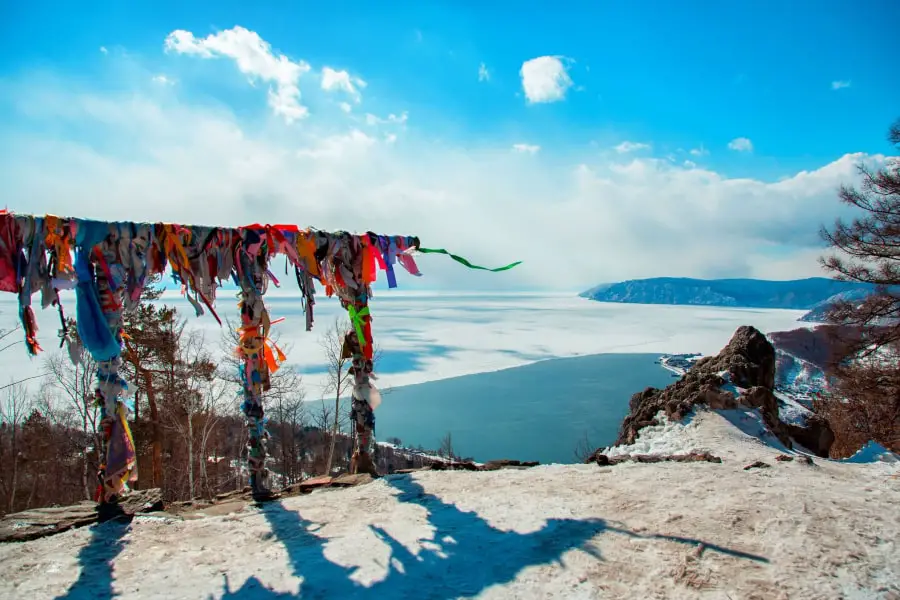
Known as the ‘Pearl of Siberia’, Lake Baikal is the most ancient and deepest freshwater lake in the world, and arguably one of the most favourite Trans Siberian stops. A large variety of neo-classical and wooden buildings can be seen dotted around the shoreline, some of them having been decorated by charming ornate fretwork. The waters of Baikal are populated by hundreds of unique species found nowhere else in the world, such as the omul and the beloved Baikal seals. Depending on the season, there are a variety of activities that can be done on the lake itself. In the warmer months, you can kayak, dive, fish or island hop on a cruise to secluded golden-sand beaches. In winter, try your hand at snowmobiling, dog sledding or ice skating across the crystal-clear frozen lake.
9. Ulan-Ude
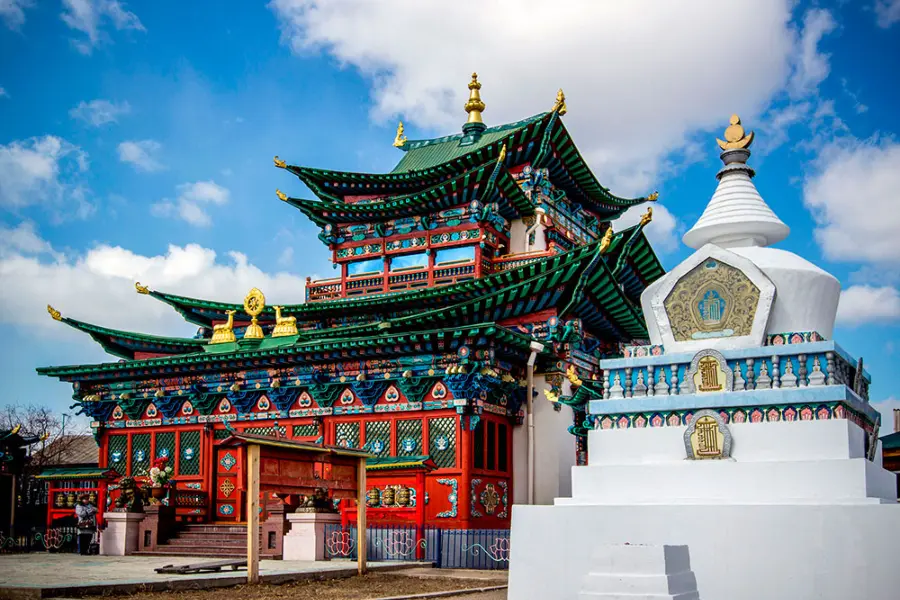
Founded as an old trading post, Ulan-Ude, one of the most famous Trans Siberian stops, is a unique Siberian town full of playful contradictions with the East and the West. It has the title of the centre of Russian Buddhism and also houses the world’s largest bust of Lenin. Buddhist monks in orange robes roam the same streets as Orthodox priests in perfect harmony, and Orthodox churches neighbour with ornate Buddhist temples. An unspoken symbol of Ulan-Ude that every traveller must experience is the Ivolginsky Datsan, a Buddhist monastery that sits just outside the city centre. Surrounded by picturesque mountains, the Datsan symbolises the re-emergence of Buddhism in Russia after the fall of the Soviet Union.
10. Vladivostok
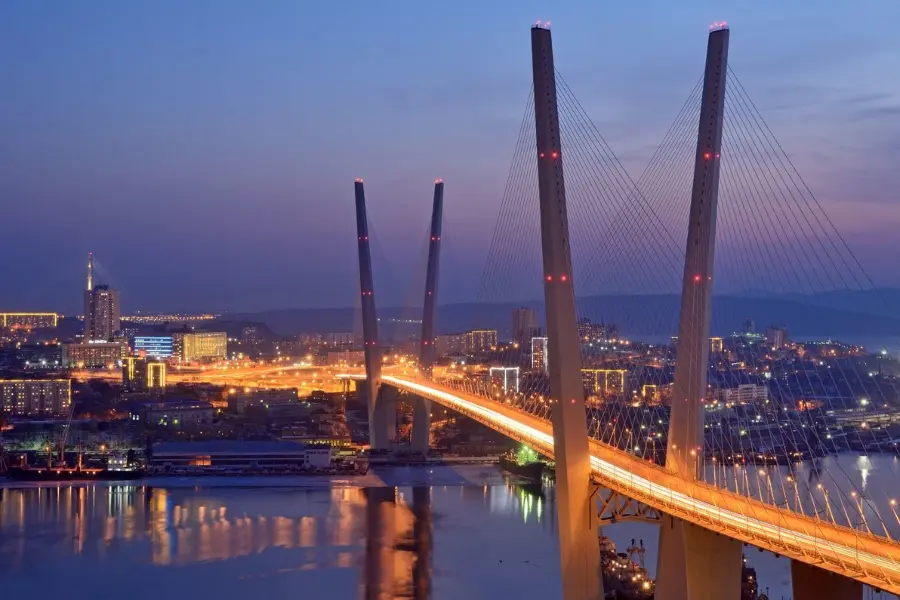
The last Trans Siberian stop following the mainline, Vladivostok is a sight to see with its mix of rundown infrastructure imposed on top of the powerful natural seaside terrain. Its unique charm is captured through the hilly streets, numerous bays and oak woods surrounding the city. Most of the attractions in Vladivostok are relatively modern, such as its military fort, a submarine that has been transformed into a museum, botanical gardens and the regional ethnographic museum that is sure to intrigue any history-lover. There are also boat tours to nearby islands, hiking, rafting and a Siberian tiger refuge. For those who want to continue their Trans-Siberian journey from here, there’s also an option to catch a ferry over to Japan or South Korea.
11. Ulaanbaatar
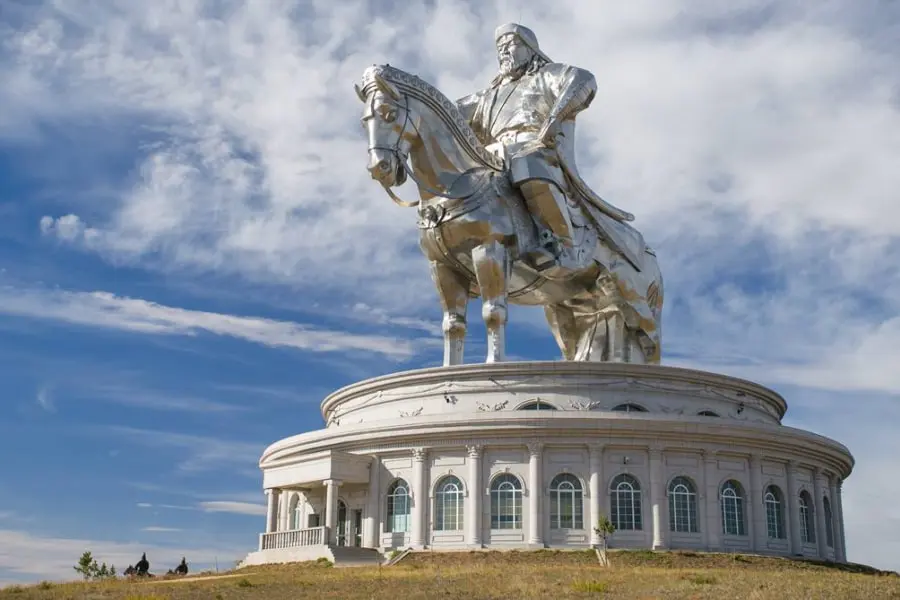
A journey along the Trans-Mongolian Railway will take you to Ulaanbaatar, the relaxed provincial capital of Mongolia. This is a very popular stopover destination among travellers due to Mongolia’s untouched nature, pristine steppes, vast deserts, peculiar nomadic culture and hospitable locals. Top attractions in the city include Gandan Khiid – Mongolia’s largest Buddhist monastery, the monument to Genghis Khan at the Sukhbaatar Square, and the incredible Winter Palace of Bogd Khaan. The Gobi Desert in southern Mongolia is also another favourite and is known for its extensive dunes, low mountains and rare wildlife such as snow leopards and Bactrian camels. Visit the Gorkhi-Terelj National Park for breathtaking sceneries of wild and unspoiled Mongolia. It is here where you can also go inside the traditional Ger and meet a nomadic family, or even try your hand at horseriding, an everyday part of Mongolian life.
12. Beijing
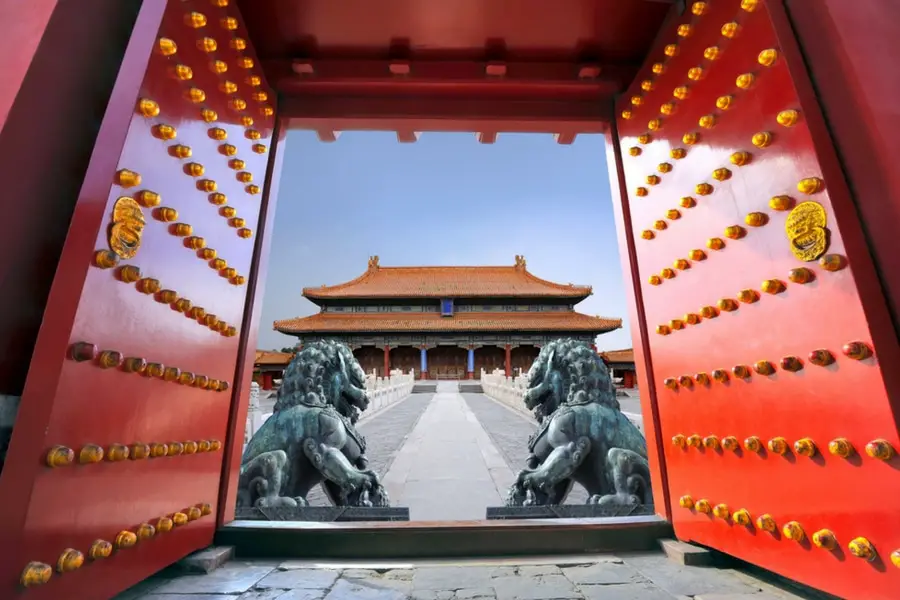
Travelling along the Trans-Manchurian Railway will get you to Beijing, the modern capital of China. With its rich history, vibrant contemporary art scene, excellent dining and varied nightlife, this interesting mix of ancient and modern makes Beijing a must-visit destination. There are plenty of attractions to visit, such as Tiananmen Square, the largest public square in the world that also plays host to chairman Mao’s great mausoleum. Staring out across the square above the Gate of Heavenly Peace is the famous Technicolour portrait of Mao. It is through these gates where you can enter the Forbidden City. Other sights include the UNESCO listed Great Wall of China, the Summer Palace lake and pavilions, the Temple of Heaven – arguably one of China’s most beautiful buildings, and Beijing’s many winding Hutongs which still hold much of the city’s charm.
13. Harbin
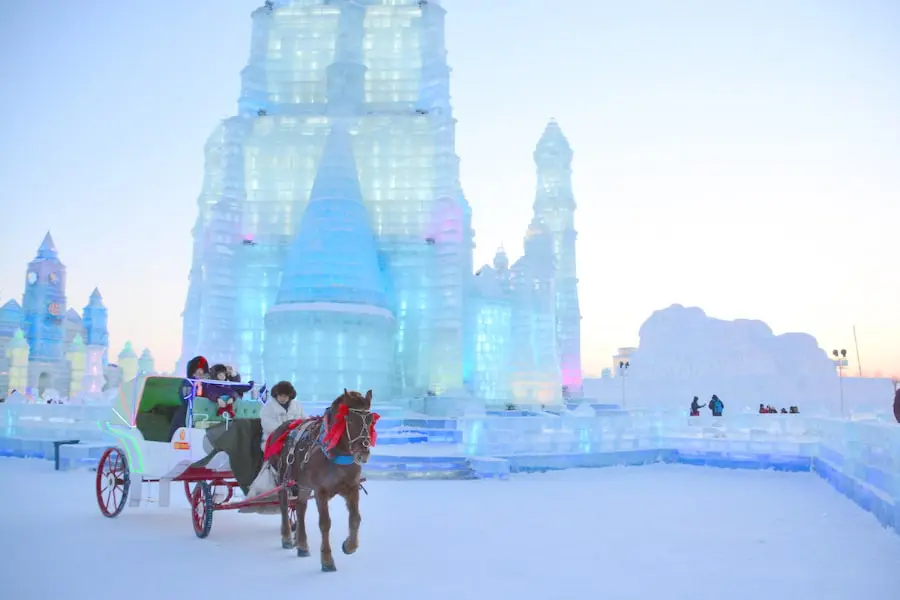
Although located in China, Harbin is a testament to Russian influence in Manchuria, with a large majority of the city-centre being built by rich Russian émigrés who fled the Russian Revolution in 1917. The result is a thoroughly Chinese city with a pedestrianised main street similar to one of St Petersburg’s grander boulevards, lined with belle-epoque-style shopping galleries, restaurants, and other Russian-built ventures. The standout architectural feature is the stunning St. Sophia Orthodox church with its green domes and Neo-Byzantine features. However, the biggest reason to visit Harbin is for the annual Ice and Lantern Festival in the winter, when professional ice sculptors gather together to compete and transform the city into a winter wonderland. Monumental sculptures made from blocks of ice and deftly carved snow sculptures take over Harbin and draw visitors from all around the globe.
Check out this snippet of Trans-Siberian in winter:
Related posts
Related Tours
If you have any urgent questions or enquiries, please give us a call +61 412 587 785
